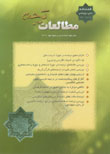A Comparative Study of Translation at Colonial and Post-Colonial Periods in Iran
Abstract
The present paper studies the impacts of colonialism on translation within the framework of post-colonial paradigm. To this end, two translations of Haji Baba of Ispahan written by James Morrier, which were carried out during colonial and post-colonial periods, are compared with each other and with the original. This book is a sarcastic story about Iran and Iranian tenets and morale and was later considered a serious book and taught to British Army officers in India who were supposed to go to Iran on mission. The first translation belongs to Mirza Habib Esfahani who translated the book during the rule of Qajar dynasty – which is a period in the history of Iran known for the intervention of colonizing powers. The second translation is done by Mehdi Afshar and is translated after Islamic Revolution in 1979 which is considered the post-colonial period. In the comparison process, expansions and reductions were extracted, analyzed and categorized. Results reflected negative reaction of translators against colonization and colonizers which were more serious during the colonization period and a little subsided in the post-colonial period. It is worth mentioning that the reaction of translators was in line with their political orientation during their lives, according to their biographies.Published
2011-05-31
How to Cite
Mollanazar, H., & Hosseini, M. R. (2011). A Comparative Study of Translation at Colonial and Post-Colonial Periods in Iran. Iranian Journal of Translation Studies, 9(33). Retrieved from https://journal.translationstudies.ir/ts/article/view/463
Issue
Section
Academic Research Paper
License
Copyright Licensee: Iranian Journal of Translation Studies. This article is an open access article distributed under the terms and conditions of the Creative Commons Attribution–NonCommercial 4.0 International (CC BY-NC 4.0 license).





